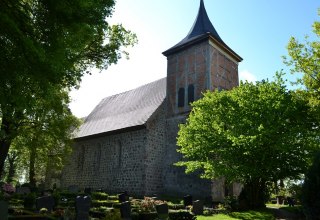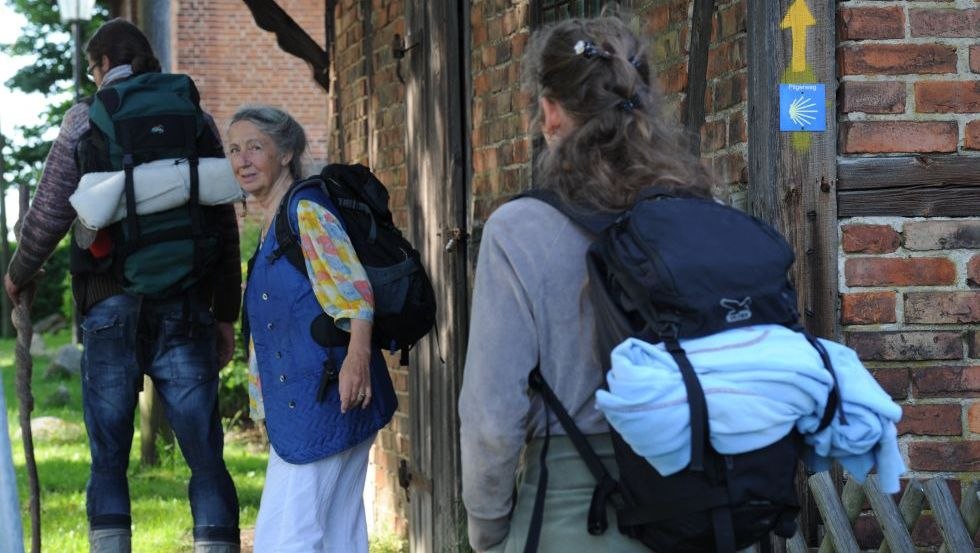The Via Baltica, the Baltic Way of St. James pilgrims, stretches from the Baltic countries via Usedom, Rostock, Wismar, Lübeck, Hamburg to Bremen and Osnabrück and then continues as the Westphalian Way to Cologne. There it connects with the old pilgrimage routes through Belgium and France to Spain with the destination Santiago de Compostela.
The section through Mecklenburg-Vorpommern leads over 16 stages from Swinoujscie in Poland to the Hanseatic city of Lübeck. Everywhere one encounters signs of former godliness. Almost every village has a solid church, massive steeples define the silhouette of the towns, and even the once lofty monasteries bear witness to the faith in God of their builders.
In the carefully restored Hanseatic towns, the history of the country comes alive again. The University and Hanseatic City of Greifswald is the first on the way and already delights its guests at the city limits with the Eldena monastery ruins. In the Hanseatic city of Rostock, thick walls and deep moats bear witness to the fortified nature of the once mighty Hanseatic metropolis. The fact that the Middle Ages are alive becomes clear to everyone at the latest in the third Hanseatic city along the way. The layout of the Hanseatic City of Wismar, crowned a UNESCO World Heritage Site, has remained virtually unchanged for hundreds of years. And as before, three sky-high brick cathedrals tower over the city.
Outside the cities, one usually wanders far away from major roads through forests and meadows, rests by small lakes and catches a glimpse of the Baltic Sea in the distance. But the rural idyll also offers a lot more: In Lassaner Winkel, for example, pilgrims can discover more than 300 different medicinal and spice plants in the Papendorf scent and touch garden, take time out with a sound massage or experience old craftsmanship in the café of a weaving workshop.
The practice of hospitality, which is common in Spain, is also practiced on the northern German route in many parishes. Prerequisite is the presentation of the pilgrim's letter, which is issued at some point for a small fee or donation by all St. James societies.
More information under:
Protestant Church of Mecklenburg-Vorpommern
Via Baltica Publishing House






























